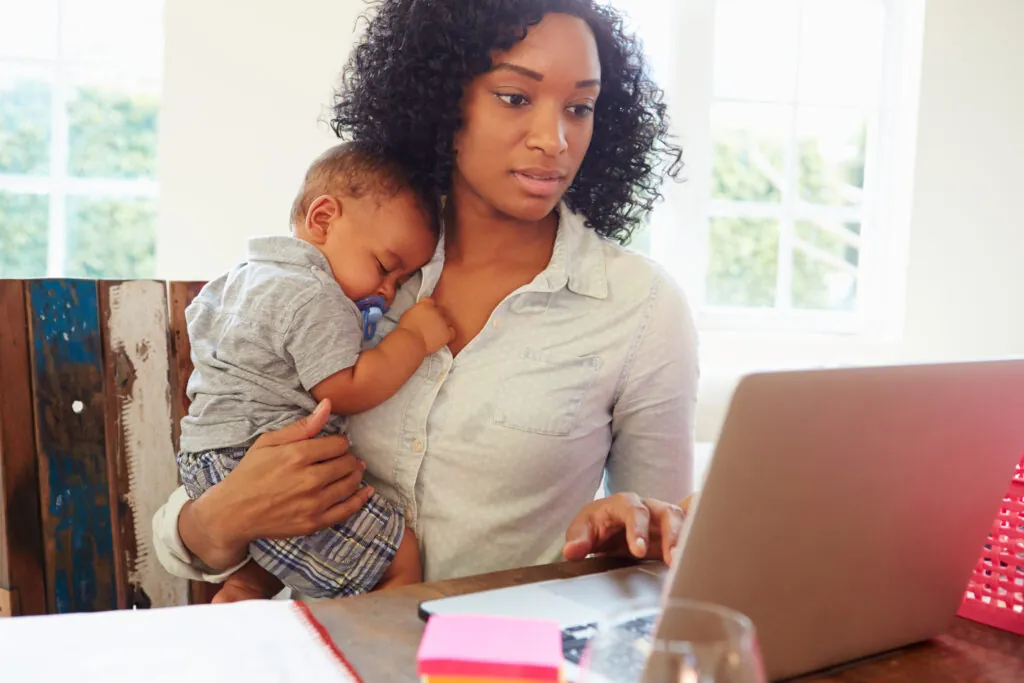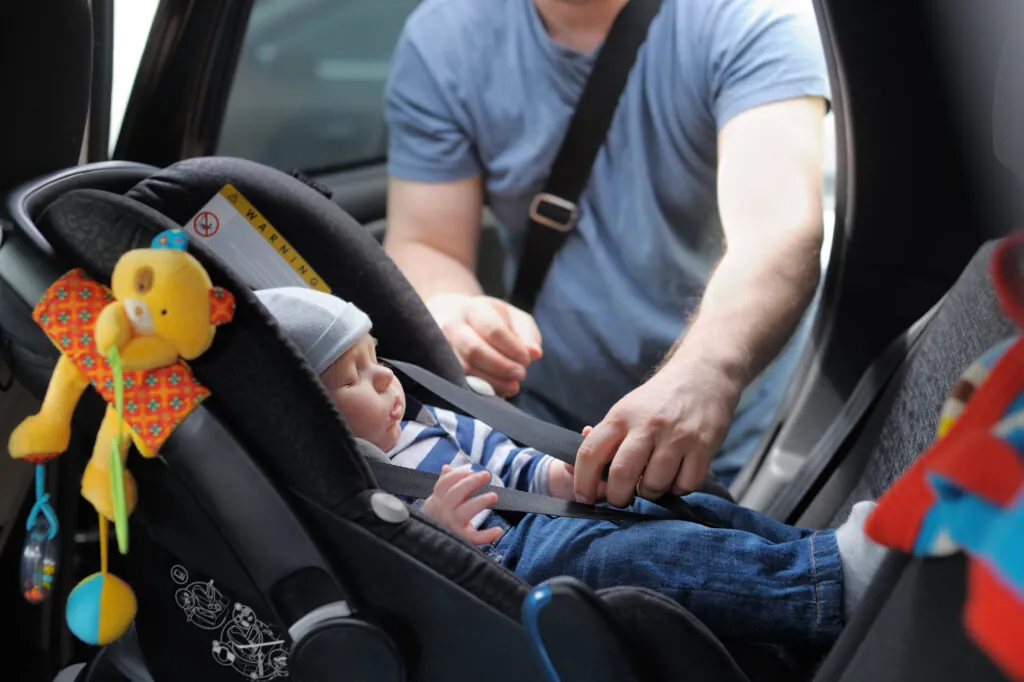Back pain is one of the most common health issues in the United States, affecting an estimated 65–80% of adults at some point in their lives. For parents, the familiarity can feel even higher. Between carpool lines, work demands, stressful evenings, and constantly lifting kids, it’s no surprise that so many moms and dads report nagging aches or even disabling flare-ups. In this article, we’ll break down some of the most common reasons parents develop back pain and share a few physical therapy–based strategies to help keep you feeling better.
Endless Sitting
Imagine this familiar story for many parents: they spend 30 minutes in the car line for school drop-off, then head straight to the office for eight hours in a chair, only to spend the evening shuttling kids to extra curriculars or sitting on hard bleachers at a game. For many parents, that’s a normal weekday.
Sitting itself isn’t inherently harmful, but long periods in the same position, especially with the low back in a rounded (lumbar flexion) posture, can leave you feeling stiff and sore. Like most things, the problem isn’t the posture itself, but the lack of movement and variety.

PT Tip #1: Movement breaks
I often prescribe movement breaks throughout the workday for my parent-patients. The goal isn’t to increase strength but to get them out of static positions and provide a dose of movement into positions they’re often neglecting. The majority of the time I will give extension focused exercises like bird dogs, band pull-aparts, and thoracic extensions on a foam roller. These can help counteract the hours of sitting.
PT Tip #2: Lumbar support
If your back aches specifically during sitting, a simple lumbar support cushion can sometimes make a big difference. It’s certainly not necessary, but it may provide relief for some people.
Repetitive and Awkward Lifting
Parenting is full of lifting tasks that don’t fit neatly into a gym exercise: bending over to pick up a toddler 100 times a day, strapping squirming kids into car seats, or holding a baby on one hip while cooking dinner. These repetitive movements add up quickly, and can contribute to potential back pain.

PT Tip #1: Movement strategies
If bending down to grab your child aggravates your back, try changing the way you lift. Using a hip hinge or squat strategy spreads the load across the hips, knees, and spine in an alternative way that may feel better. Similarly, if you tend to carry your child on one hip, make a conscious effort to switch sides periodically. These small changes reduce repetitive stress to the same tissues.
PT Tip #2: Strengthen your back
This is one of the most neglected muscle groups that I see as a physical therapist. Many people avoid training their back due to fear of injury, when in reality a stronger back is more resilient to the demands of parenting. Exercises like neutral-spine deadlifts, Jefferson curls, and rotational movements build capacity across multiple patterns. The stronger your back is, the bigger the buffer between you and injury.
Nutrition
Busy parents often find themselves grabbing fast food between activities or eating leftover dinosaur chicken nuggets from their kids’ plates. While convenient, these habits can lead to a pro-inflammatory diet which has been linked to increased risk of back pain. Balanced gives your tissues what they need to recover and stay healthy.
PT Tip #1: Plan your meals
Meal planning doesn’t have to mean marathon prep sessions on Sundays. Simply deciding what dinner will look like each night of the week takes the mental load off and reduces last-minute, unhealthy choices. Even jotting down a simple list on the fridge can help prevent the evening scramble which often leads to frustration and an expensive Uber Eats bill.
Stress
Parenting is stressful, no surprise there. But research consistently shows that psychological stress and back pain are linked. Stress can increase muscle tension, pain perception, and reduce your body’s ability to recover. Over time, this creates a vicious cycle: pain adds stress, and stress worsens pain.
PT Tip #1: Stress management
While stress can’t be eliminated, it can be managed. Techniques like mindfulness meditation, and breathing exercises can help. Self-care also matters: try scheduling an hour outside of your normal work, childcare, and exercise commitments to do something that you enjoy and provides you with happiness.
Final Thoughts
Back pain in parents is rarely caused by just one thing. Instead, it can be the combination of prolonged positions, repetitive lifting, poor diet choices, and constant stress that wears the body down. The good news is that small changes like moving more throughout the day, lifting with different strategies, strengthening your back, fueling your body well, and managing stress can all add up to less pain and more energy to enjoy time with your kids.
If your back pain is interfering with your daily life, consider working with a physical therapist. A PT can help you find the right mix of exercises, strategies, and lifestyle changes tailored to your specific needs.
Find a PT Clinic Near You!


